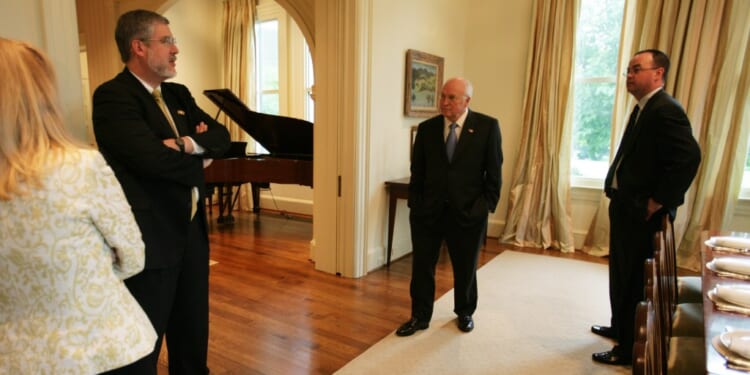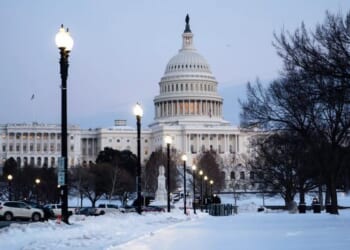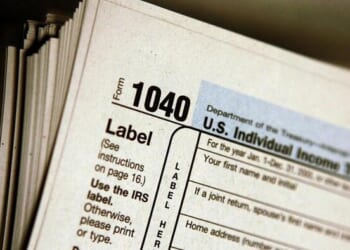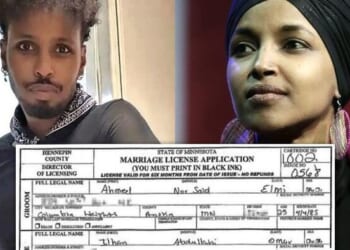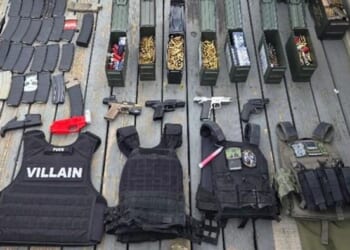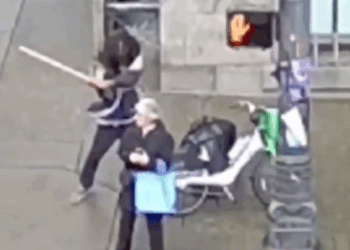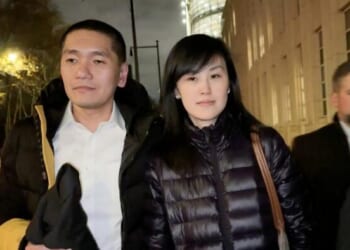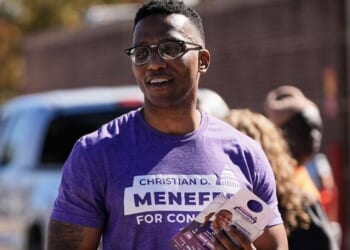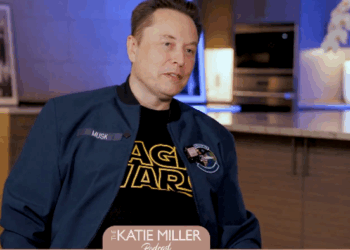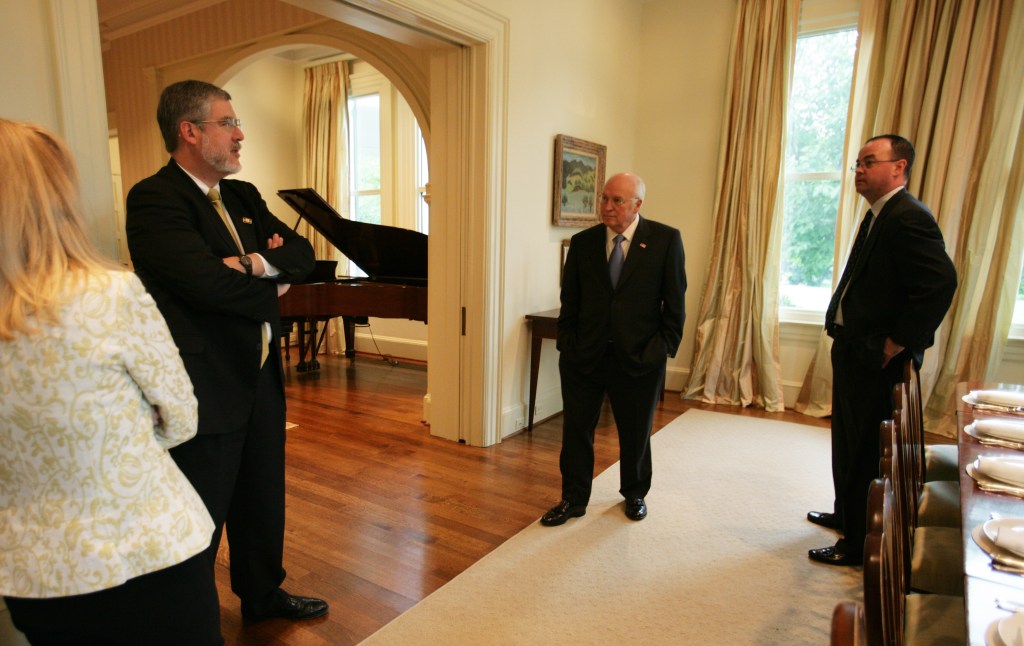
I had the great privilege of serving as counsel to Vice President Dick Cheney for part of his second term, but Dick Cheney did not need a lawyer on his staff. He did not need staff at all. He had been chief of staff to President Gerald Ford at age 34, minority whip of the House of Representatives, and secretary of defense during the first Iraq War. I used to joke that Vice President Cheney kept his staff around purely for entertainment value because he knew most everything about every job in government. But I did my best to entertain him and occasionally give him the benefit of my best legal judgment.
This was during a time of waning Cheney influence in George W. Bush’s White House. Cheney’s chief of staff, Scooter Libby, had resigned after being indicted for allegedly lying during the Valerie Plame Wilson investigation. The situation in Iraq had deteriorated, leading to the sacking of Cheney’s old friend and longtime political ally Donald Rumsfeld. And then Cheney had an unfortunate hunting accident only a few months into my tenure on his staff—leading many to wonder whether he would survive politically. He did, of course, but it all took a toll. He was still in the room when Bush had decisions to make and still had an influential voice, but others had gained prominence in the internal debates.
Despite the challenges, Cheney remained a committed, and believe it or not, happy warrior. Cheney was ever guided by principle—chief among them was that he was there to do everything needed to protect the American people. He was a tireless voice in standing up to tyrants abroad and in preventing another September 11-like terrorist attack at home. He fought all the way to the Supreme Court to protect the president’s constitutional authority from congressional meddling—and won. His fortitude certainty drew fierce criticism—few campaign trips we took during the 2006 congressional election cycle didn’t involve a fair number of middle-finger salutes from people in the streets. And the criticism was even more blistering when Democrats took control of Congress.
Yet he held firm in his belief that what the Bush administration was doing was right, and in being the greatest defender of the president’s decisions. As far back as his first real introduction as a national candidate—his first vice presidential debate against Sen. Joe Lieberman in 2000—you got the sense of a man in command of a vast well of knowledge and experience, guided by principle, not polls. He told congressional candidates that he would do whatever he could to help them as well—whether that meant speaking at a fundraiser or staying as far away from their districts as possible. His resoluteness and conviction greatly comforted many in uncertain times.
The public Cheney was a stern, unflinching man. But in private, Cheney, whom we all just called “the Boss,” was different. He was a Western man, born and raised in Wyoming, and possessed a quiet assuredness (I never heard him raise his voice in the most difficult of times). He was no master conversationalist, but when he did speak, you listened. He was an encyclopedia of recent American political history. On one trip to his weekend retreat on the Eastern Shore of Maryland, I mentioned that I had caught the 1974 footage of President Gerald Ford testifying about his pardon of President Richard Nixon to a House committee on C-SPAN as I was flipping channels. He then proceeded to tell me all about the debate over whether Ford should have appeared before Congress, the concerns about the precedent it set for a president to take questions from Congress, and the massive preparations that went into the testimony.
Some years later, after he left office, we spoke together at a symposium on the vice presidency, along with former Reagan administration Attorney General Ed Meese. At a small event the night before, Cheney and Meese got into a discussion about the 1980 Republican National Convention, where the Reagan camp (led by Meese) and the Ford camp (led by Cheney) had negotiated a possible Reagan-Ford ticket. It fell apart for obvious reasons. But to hear the two old warriors talking about such a historic event from the perspective of the opposing camps was spellbinding.
But what I remember best about Cheney was his impish sense of humor. He used to tell the story of barnstorming with Alan Simpson (who was then running for Senate) and hearing Simpson’s stump speech so often that one day, speaking first, he decided to just give Simpson’s speech. When Simpson later went to deliver his stolen speech, it went over like a lead balloon. And Cheney smiled his crooked smile every time he told the story.
He also could take as good as he could give. I made a guest appearance once at his weekly domestic policy meeting, run by his very competent domestic policy adviser Neil Patel, to discuss a constitutional issue percolating in Congress. I grabbed a seat right next to his desk and planned to wait my turn to speak. He looked at me as soon as I sat down and playfully said, “What the hell are you doing here?”
“Sir,” I responded, “I am here to raise the intellectual bar at this meeting.” He just shook his head and laughed.
Once, shortly after Hillary Clinton had called him “Darth Vader” in a speech, we were all loading into an elevator for a fundraiser somewhere in Washington, D.C.—his military aide, his doctor, his photographer, his Secret Service detail, and me. Cheney got in last and with his back to all of us and simply acknowledged us with a head nod and “Gentlemen.” We all responded, “Sir.” I waited a moment and followed with, “Or shall I say, Lord Vader?” He looked over his shoulder, grinned his crooked grin and said one word: “Careful.” I did not clutch at my throat, but I think he was telling me he had that power.
Cheney commanded enormous respect in the Bush administration. So much so that I found it necessary to modulate my remarks at White House staff meetings, lest others go back to their offices thinking that Dick Cheney was demanding something, when it was just, in reality, his lawyer asking tough questions. But the respect he had from the military was of a different order. That was because he had their back. He knew the price they were willing to pay—and were actually paying every day—and he made sure they understood he knew. At every military event we did during my tenure, the soldiers, sailors, airmen, and Marines unfailingly showed their appreciation for the vice president.
Cheney was actually acting president for a few hours in July 2007 while Bush underwent a medical procedure. Despite the caricatures, he did not declare war. Instead, he wrote a note to his grandchildren commemorating their grandfather’s acting tenure. He was a devoted husband to Lynne, protective father to Liz and Mary, and proud grandfather to their several children. He spent much of his time in retirement in his Ford pickup pulling a horse trailer across Wyoming to his granddaughter’s riding events.
When I got my first job in government, as a relatively low-level political appointee in the Justice Department, I had just hoped that one day I might get to meet Vice President Cheney. Through hard work and happenstance, I got that chance and a lot more. It was the greatest honor of my life. He was a giant, and he will be missed. Requiescat in pace, Richard B. Cheney.

